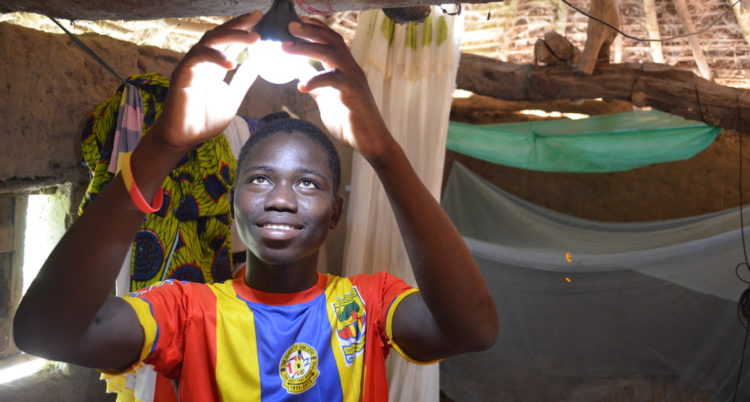PEG Africa, a West Africa-based pay-as-you-go (PAYG) solar company, has raised a US$25-million Series C funding round, taking its funding total to US$50-million, to expand service delivery to the region. This new round of fund follows a US$13.5 million round in 2017 and two other rounds in 2016. The company plans to use this latest round of investment to further establish itself as a market leader in West Africa.
The company, headquartered in Ghana provides credit for solar home systems to underserved households in Ghana, Ivory Coast and Senegal, and serves over 60,000 households. Its customers have channeled money spent on poor-quality polluting fuels such as kerosene to solar energy, according to a statement released by the company.
“As the first PAYG financing company to set up in West Africa, we have always felt that we could build a large, profitable business by being laser-focused on financing the solar needs of underserved customers in this region,” said PEG Chief Executive Officer (CEO) Hugh Whalan.
See also: Uk Aids Rural Kenya with $2.2 million Worth of Solar Plants
“Our solar solutions deliver better, cleaner and cheaper energy to our customers, and we have been successful at expanding rapidly and profitably while improving the lives of some of the poorest and most vulnerable in the countries we operate in. More than 50 per cent of PEG’s customers earn less than US$3 per day, while 89 per cent do not have access to the national electricity grid, and 82 per cent never received financing or access to credit before PEG entered their lives,” he says.
According to its statement, US$20-million of this round is in debt, with CDC Group, a development finance institution in the UK, arranging a $15M multi-currency facility. CDC is joined by existing lenders SunFunder and responsibility. The remaining US$5 million comes in the form of equity investments from existing investors, such as Energy Access Ventures and Blue Haven Initiative, and new investors Total Energy Ventures and the Renewable Energy Performance Platform (REPP).
“This facility is the first local currency debt provided by CDC to a solar company in the region and marks an important step towards reducing the sector’s exposure to currency fluctuations and increasing its long term financial sustainability,” said CDC managing director Holger Rothenbusch.
More on TechGist Africa:
- Winch Energy to Power 24 villages in Sierra Leone via Solar
- Econet’s Solar Program Aims to Transform Rural Areas in Zimbabwe
- Azuri Technologies, First Bank Nigeria Collaborates on Off-grid Solar Supply
- Pay-As-You-Go Solar Satellite Powered by Azuri Launched in Kenya
- Off-Grid Solar Firm, SolarNow Gets $9 million Fund for Expansion














